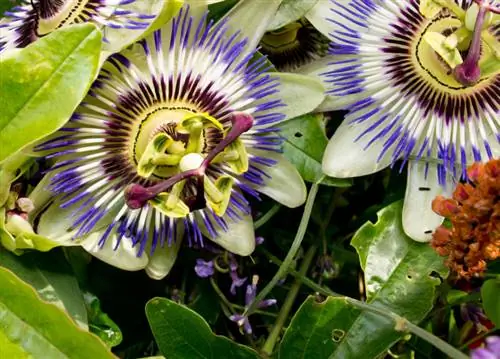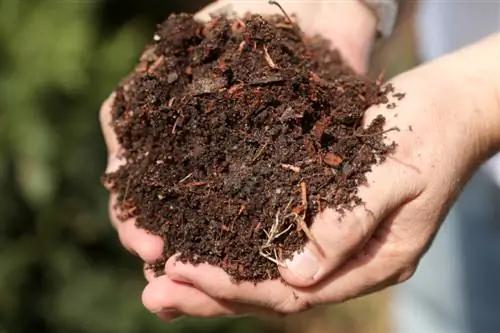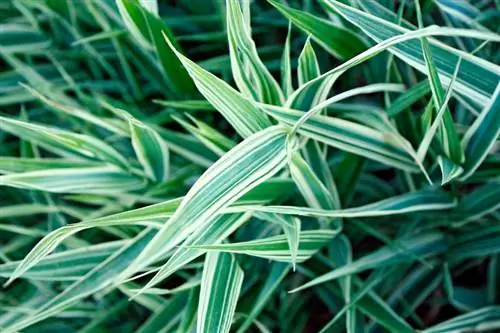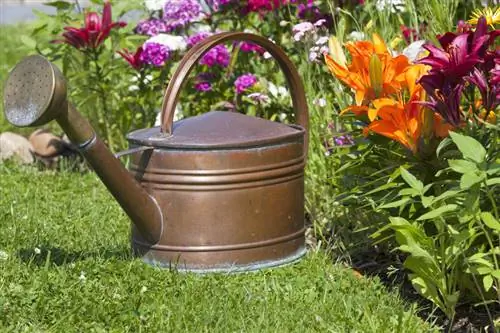- Author admin leonars@hobbygardeners.com.
- Public 2023-12-16 16:46.
- Last modified 2025-01-23 11:20.
As a typical plant of the tropics and subtropics, the passionflower is a heavy feeder, so it needs (and consumes) a lot of nutrients. For this reason, regular fertilization is essential - otherwise your passiflora will have yellow leaves and stop both growth and flowering. By the way, their water requirements are also very high, although the passion flower, like so many plants, cannot tolerate waterlogging.
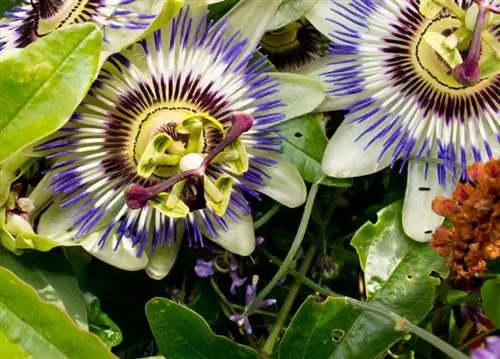
How should you fertilize passionflower?
To properly fertilize the passion flower, use liquid universal or flowering plant fertilizer every two weeks during the growing season from April to September. For particularly hungry specimens, weekly fertilization can make sense. Make sure that the fertilizer does not contain too much nitrogen to avoid plants that are lazy to bloom.
Weekly fertilization during the growing season
In general, fertilization with liquid universal or flowering plant fertilizer every two weeks is recommended for passionflower during the growing season between April and September. However, this rhythm is too short for many, especially hungry, specimens. So if your passion flower doesn't want to grow properly and even has yellow leaves, then this could well be due to a lack of nutrients. In this case, weekly fertilization is indicated.
Caution: Too much fertilizer makes Passiflora lazy to bloom
When choosing fertilizer, make sure that it does not contain excessive amounts of nitrogen. Nitrogen greatly stimulates plant growth, but at the same time makes flowering plants lazy to bloom. With a nitrogen-rich fertilizer, the passion flower will prefer to invest its energies in growth rather than in the formation of flowers. Many experienced passiflora lovers therefore swear by letting the plants “starve” a little.
Organic fertilization makes sense?
Unfortunately, purely organic fertilization of passiflora with compost or horn shavings is not sufficient given the high nutrient requirements, but can be used as a supplement at the beginning of the growing season. The problem with organic fertilizer is the fact that the specific nutrient content of, for example, compost or manure is, firstly, unknown and, secondly, fluctuates greatly. In addition, animal fertilizer in particular often contains a lot of nitrogen and is therefore not suitable for flowering plants.
Tips & Tricks
Passionflowers kept indoors are fertilized in winter with about a quarter of the usual amount of fertilizer in summer, while specimens that have been kept cool are not fertilized at all.

